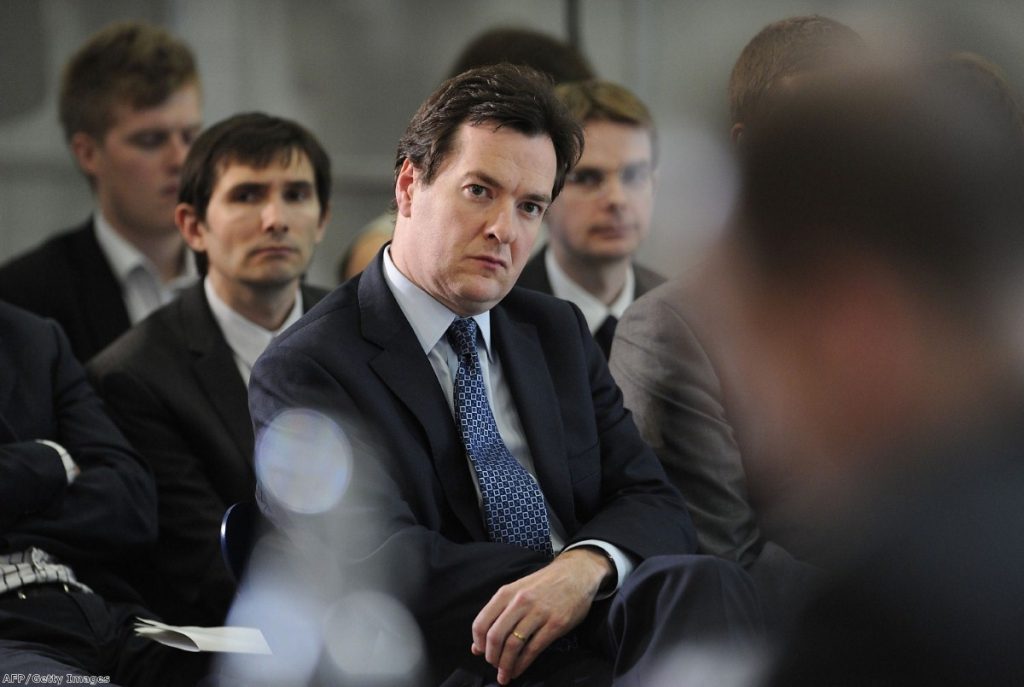Osborne’s faith in cuts strengthened by IMF
By Alex Stevenson Follow @alex__stevenson
The government does not need to change course from its deficit reduction plans to help the economic recovery, the International Monetary Fund (IMF) has said.
Its latest report backed George Osborne's drastic approach to "fiscal consolidation", giving the chancellor confidence to stick to 'plan A' despite disappointing growth figures.
GDP growth has stagnated for the last year, with economic output registering 0.5% and 0.2% in the first and second quarters of 2011.


The IMF downgraded its growth forecast for this year to 1.5% but left its 2012 prediction of 2.5% unchanged, reflecting its faith in the UK economy's ability to bounce back.
"We consider that the current deviations from forecast represent temporary factors and that the current policy mix strikes us as appropriate," acting managing director John Lipsky told journalists.
"If in the future the economy's trajectory proved to deviate from our forecast, then it will depend very much on what is the source of any deviation in terms of policy response."
Labour has called for VAT to be reduced from 20% to 17.5% to help the recovery. The IMF suggested Mr Osborne could consider some tax cuts, but was clear it did not think the chancellor should change direction overall.
"The fiscal consolidation does create some headwinds to growth," Mr Lipsky added.
"But it also creates some positive aspects. In the short-run, disinflation that should contribute to a lowering of interest rates and helping the economy. And in the longer term, bolstering confidence and restoring fiscal sustainability."
Mr Osborne said he welcomed the report, which pointed out that harsh spending cuts could be countered by keeping interest rates "lower for longer".
"Of course the IMF notes that the economic data in the UK has shown, yes, stronger job creation and tax receipts than expected, but like many countries, weaker GDP growth and high inflation than was forecast last year," he said.
"Their analysis suggests that a significant reason for this has been the unexpected spike in global oil and commodity prices. Around the world this has led to slower growth and higher inflation than was forecast a year ago."

